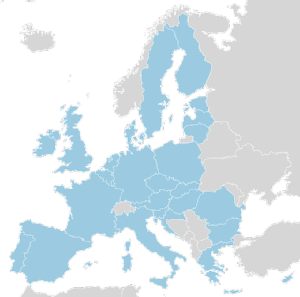IER News & blogs
Technology, austerity and employability in urban labour markets
 Professor Anne Green has had an article published in the journal Urban Studies. The article discusses two key changes affecting employability, labour market operation and policy delivery are austerity and the expansion of the use of information and communication technologies (ICT), especially web-based technologies. Increasingly, given pressures for cost savings and developments in ICT, employers’ recruitment and selection strategies are at least partly web-based, careers guidance and public employment services are moving towards ‘digital by default’ delivery and job seekers are expected to manage their job search activity and benefit claims electronically. It asks the question: what are the implications of austerity and technological change for employability?
Professor Anne Green has had an article published in the journal Urban Studies. The article discusses two key changes affecting employability, labour market operation and policy delivery are austerity and the expansion of the use of information and communication technologies (ICT), especially web-based technologies. Increasingly, given pressures for cost savings and developments in ICT, employers’ recruitment and selection strategies are at least partly web-based, careers guidance and public employment services are moving towards ‘digital by default’ delivery and job seekers are expected to manage their job search activity and benefit claims electronically. It asks the question: what are the implications of austerity and technological change for employability?
The article presents a critical review of the literature on ICT and its relation to, and implications for, employability in a context of austerity. A new framework for employability is presented and those aspects of employability where ICT plays a key role are highlighted. It is concluded that in the context of austerity and technological change more is demanded of individual job seekers/workers, as they are expected to take greater responsibility for their marketability in the labour market. This means that individuals’ attributes and skills are of enhanced importance in conceptualisations of employability. ICT skills have a key role to play in employability, but not at the expense of more conventional social skills which remain very important alongside digital literacy.
Green, A.E. (2017). Implications of technological change and austerity for employability in urban labour markets, Urban Studies, 54(7) pp. 1638–1654. DOI: 10.1177/0042098016631906
Involuntary non-standard employment in Europe
 Professor Anne Green (IER) and Dr Ilias Livanos (Cedefop) have an article on Involuntary Non-Standard Employment in Europe published in the April 2017 issue of European Urban and Regional Studies. The journal article outlines how In some countries in Europe the economic crisis starting in 2008 was marked not only by a rise in unemployment, but also by increases in individuals in part-time and temporary working, so emphasising the need to examine employment composition as well as non-employment. The promotion of non-standard forms of employment – such as part-time and temporary working – has been part of Europe’s employment agenda, but directives have also focused on raising the quality of such work.
Professor Anne Green (IER) and Dr Ilias Livanos (Cedefop) have an article on Involuntary Non-Standard Employment in Europe published in the April 2017 issue of European Urban and Regional Studies. The journal article outlines how In some countries in Europe the economic crisis starting in 2008 was marked not only by a rise in unemployment, but also by increases in individuals in part-time and temporary working, so emphasising the need to examine employment composition as well as non-employment. The promotion of non-standard forms of employment – such as part-time and temporary working – has been part of Europe’s employment agenda, but directives have also focused on raising the quality of such work.
Using European Union Labour Force Survey data, Anne and Ilias construct an indicator of involuntary non-standard (part-time and temporary) employment (INE) , depicting a negative working condition. Descriptive analyses show important differences between countries in the incidence of INE, which is highest in Spain, Portugal and Poland, and also in the composition of INE. By contrast, INE tends to be lower in countries with Anglo-Saxon and Nordic welfare state models. Econometric analyses reveal that young workers, older workers, women, non-nationals, those with low education and those who were unemployed a year ago are at greatest risk of INE.
Green, A. and Livanos, I. (2017). Involuntary non-standard employment in Europe. European Urban and Regional Studies, 24(2), pp. 175–192. DOI: 10.1177/0969776415622
MOOC on the changing world of work
 Are you prepared for the challenges of the changing labour market? Do you want to better understand and apply skills related to emotional awareness, active listening, reflection, coaching skills, peer coaching and powerful questioning? Do you want to explore tools for handling labour market information (LMI) and the digital agenda? The 'Changing World of Work' MOCC (Massive Open Online Course) is a 6 week course with an estimated workload of 3.5 hours per week. The course has been developed as part of the EmployID project which has received funding from the European Union’s Seventh Framework Programme for research, technological development and demonstration under grant agreement no. 619619. IER and Associate staff involved in course delivery: Jenny Bimrose, Alan Brown, Rachel Mulvey, Deirdre Hughes and Graham Attwell. For more information register now.
Are you prepared for the challenges of the changing labour market? Do you want to better understand and apply skills related to emotional awareness, active listening, reflection, coaching skills, peer coaching and powerful questioning? Do you want to explore tools for handling labour market information (LMI) and the digital agenda? The 'Changing World of Work' MOCC (Massive Open Online Course) is a 6 week course with an estimated workload of 3.5 hours per week. The course has been developed as part of the EmployID project which has received funding from the European Union’s Seventh Framework Programme for research, technological development and demonstration under grant agreement no. 619619. IER and Associate staff involved in course delivery: Jenny Bimrose, Alan Brown, Rachel Mulvey, Deirdre Hughes and Graham Attwell. For more information register now.
Boosting workplace innovation
 As part of the Levering Workplace Innovation project funded by the Faculty of Social Sciences’ Impact Accelerator Account, Sally Wright organised a seminar for policymakers at the UK Government’s Department for Business, Energy and Industrial Strategy. It examined ways to improve the innovative capacity of firms. She was joined as a presenter at the seminar by Chris Warhurst and Bengt-Åke Lundvall of Aalborg University in Denmark. The seminar focused on encouraging a change in current thinking about what best levers innovation, highlighting that firms that combine two approaches – the current one based on science, technology and R&D, the other based on progressive ways to manage and organise employees at the workplace-level – have five times greater product innovation.
As part of the Levering Workplace Innovation project funded by the Faculty of Social Sciences’ Impact Accelerator Account, Sally Wright organised a seminar for policymakers at the UK Government’s Department for Business, Energy and Industrial Strategy. It examined ways to improve the innovative capacity of firms. She was joined as a presenter at the seminar by Chris Warhurst and Bengt-Åke Lundvall of Aalborg University in Denmark. The seminar focused on encouraging a change in current thinking about what best levers innovation, highlighting that firms that combine two approaches – the current one based on science, technology and R&D, the other based on progressive ways to manage and organise employees at the workplace-level – have five times greater product innovation.
IER welcomes Professor Paul Edwards
 Professor Paul Edwards will be joining IER as an Honorary Professor. His research career began with the study of workplace industrial relations and industrial conflict. He has subsequently studied new management practices in the workplace and managerial careers, both in the UK and in international comparison. Current research is focusing on small firms and their employment practices, with a particular emphasis on firms run by new migrant to the UK.
Professor Paul Edwards will be joining IER as an Honorary Professor. His research career began with the study of workplace industrial relations and industrial conflict. He has subsequently studied new management practices in the workplace and managerial careers, both in the UK and in international comparison. Current research is focusing on small firms and their employment practices, with a particular emphasis on firms run by new migrant to the UK.
